The problem has persisted for a while.
It's underground. Hidden beneath the surface. Not necessarily noticeable.
Except to those who follow Congress closely.
But the issue has come back to the forefront since the House stumbled while trying to avoid a government shutdown last week.
Dozens of House lawmakers rally around funding for Afghan visa programs as Trump promises deep spending cuts
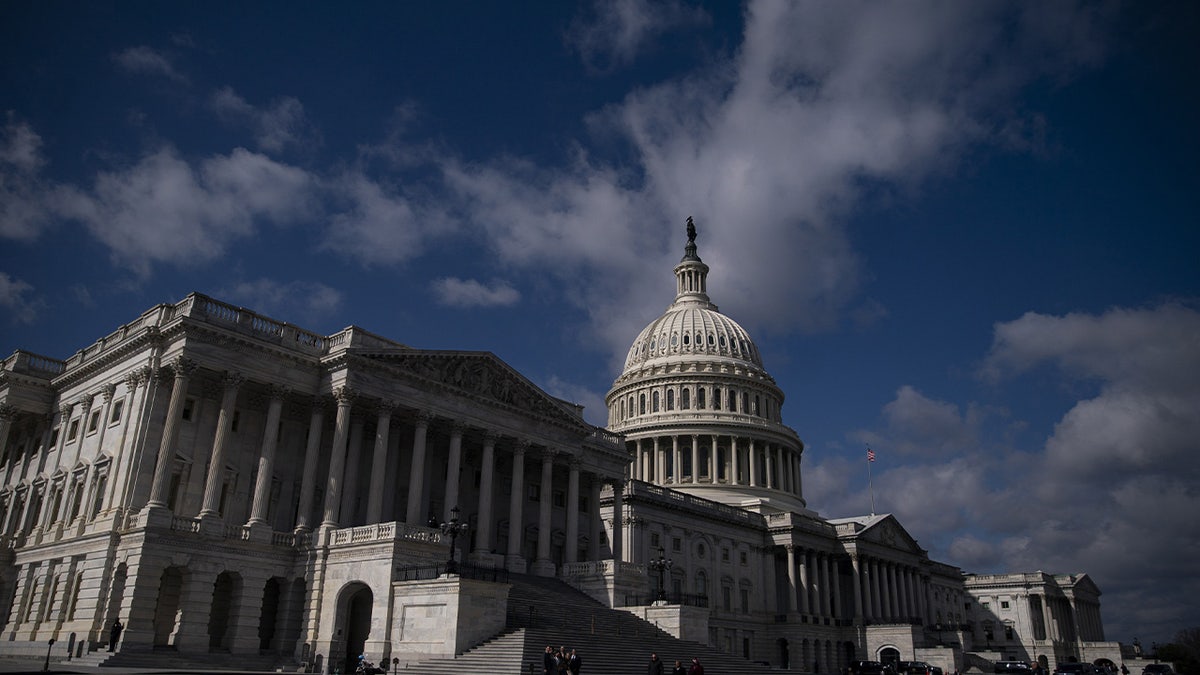
The United States Capitol in Washington, DC on February 13, 2024. (Al Drago/Bloomberg via Getty Images)
Namely:
Congress wrestled with a staggering 1,500-page spending bill. He then rejected a narrow 116-page bill – which President-elect Trump approved. Things got worse when the House got just 174 votes for the Trump-backed bill and 38 Republicans voted no. Circumstances became even more dire when the House actually voted to avoid a government shutdown over the holidays – but passed the bill with more Democrats (196) than Republicans (170). Thirty-four GOPers voted no.
It had long been likely that House Speaker Mike Johnson, R-La., would struggle to win the speaker's gavel immediately when the new Congress convenes at noon ET on Jan. 3. Congressional experts knew Johnson could be in trouble once the contours of the razor-thin House majority became visible weeks after the November election. This could escalate into a full-blown crisis for Johnson – and for House Republicans – when the speaker's vote begins a little after 1 p.m. ET next Friday.
Johnson emerges bruised from government funding of Donnybrook last week. Between four and ten Republicans could oppose Johnson in the presidential race.
DONALD TRUMP SAYS MIKE JOHNSON 'WILL EASILY REMAIN PRESIDENT' IF HE ACTS 'DECISIVE AND TOUGH' ON EXPENDITURE BILL
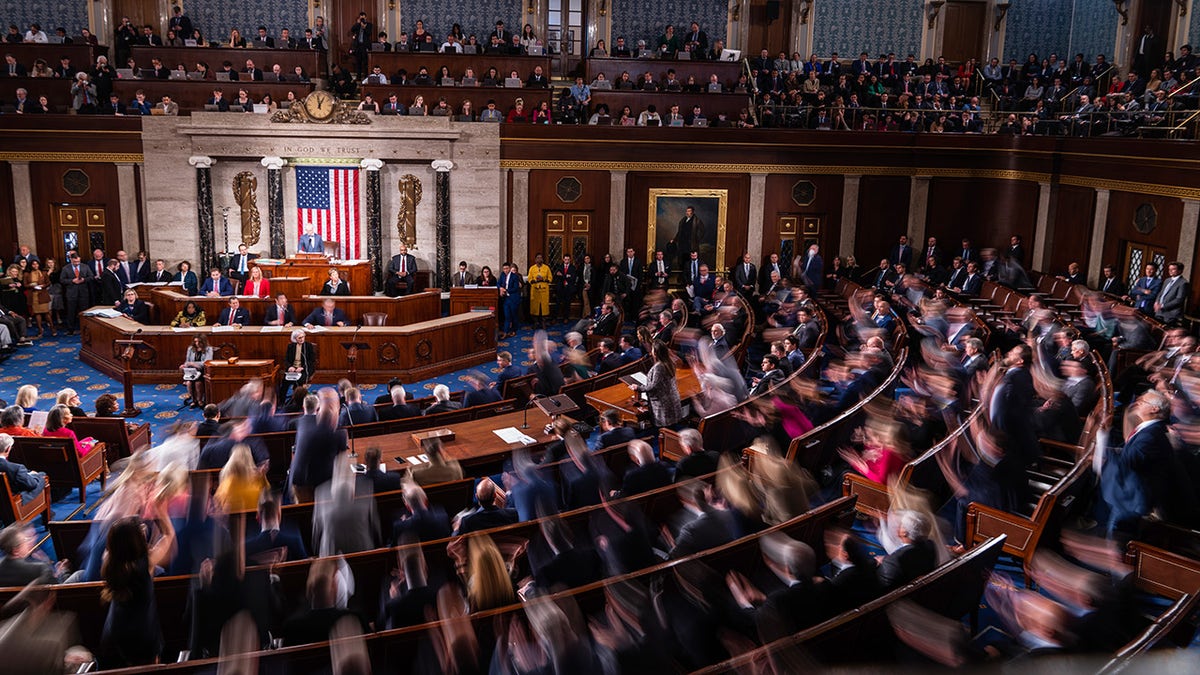
It has long been likely that Mike Johnson would struggle to win the president's gavel when the new Congress convenes on January 3. (Tom Williams/CQ-Roll Call, Inc via Getty Images)
Here is the calculation:
The House has 434 members with one vacant seat. That's thanks to former Rep. Matt Gaetz, R-Fla. He resigned from his position to This Congress a few weeks ago. Although Gaetz was re-elected in November, his resignation letter – read on the House floor – indicated that he did not intend to serve in the new Congress, which begins in January.
Here is the distribution at the start of the Congress: 219 Republicans against 214 Democrats.
Trump's pick for national security adviser, Rep. Michael Waltz, Republican of Florida, remains in the House for now. So is Rep. Elise Stefanik, R-N.Y. Trump tapped her to become U.S. ambassador to the United Nations. That awaits Senate confirmation — perhaps late January or early February. Once Waltz and Stefanik resigned, the Republican majority fell to 217-214.
But the election of the president of Parliament on January 3 poses a particular challenge. Here's the bar for Johnson – or anyone else: The Speaker of the House must obtain an absolute majority of all members voting for someone by name.. In other words, whoever got the most votes doesn't win. That's what happened repeatedly to former House Speaker Kevin McCarthy, R-Calif., when he consistently beat out House Minority Leader Hakeem Jeffries, D-N.Y., for the job. for president of Congress in January 2023. But it took McCarthy days to reach the milestone. appropriate threshold.
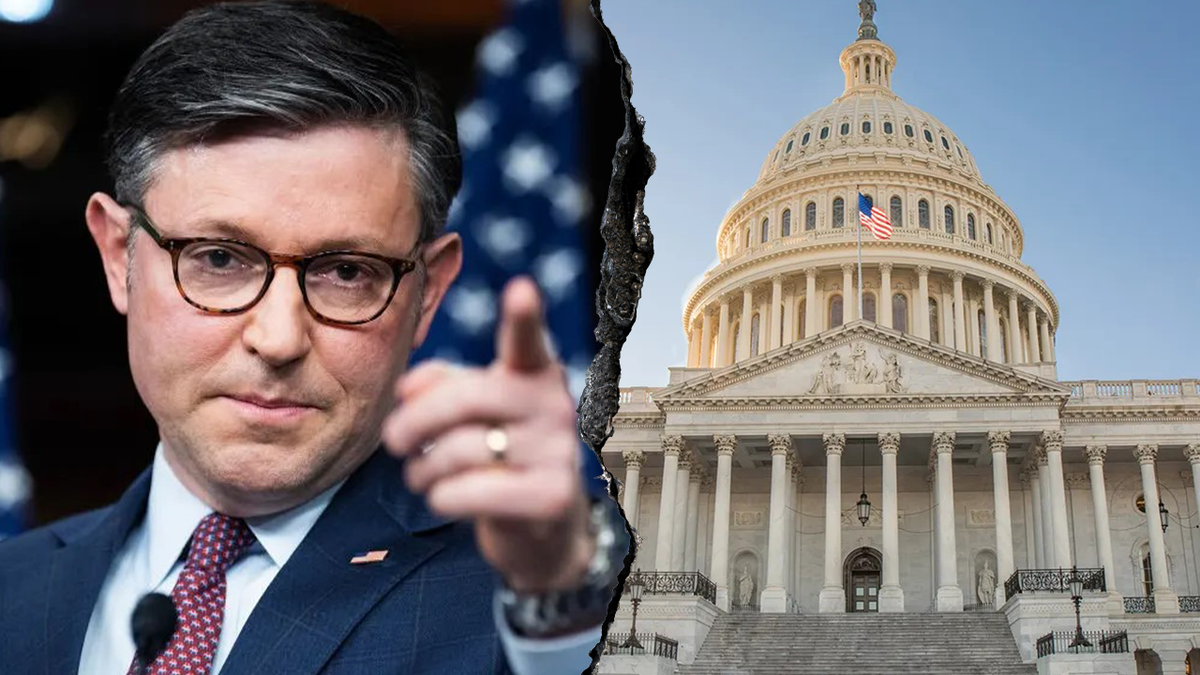
House Speaker Mike Johnson comes away bruised from recent government funding of Donnybrook. (Getty)
We'll talk about that in a moment.
So let's do the math for Mike Johnson. If there are 219 Republicans and four voted for someone other than him – and all Democrats voted for Jeffries, the total is 215-214. But there is no speaker. No one got an absolute majority of all members voting for someone by name. The magic number is 218 if all 434 members vote.
Generally, this paralyzes the House. The House absolutely and unequivocally cannot do anything until it elects a Speaker. Period.
The House cannot swear in MPs. Technically, they are still elected representatives. It is only once the House has chosen its president that he in turn takes the oath as a member.
The House certainly cannot pass a law. He cannot form committees. It is frozen in parliamentary paralysis until it elects a president.
Now I hope you're seated for the next part.
It also means the House cannot certify the Electoral College results, making Trump the 47th president of the United States on January 6.
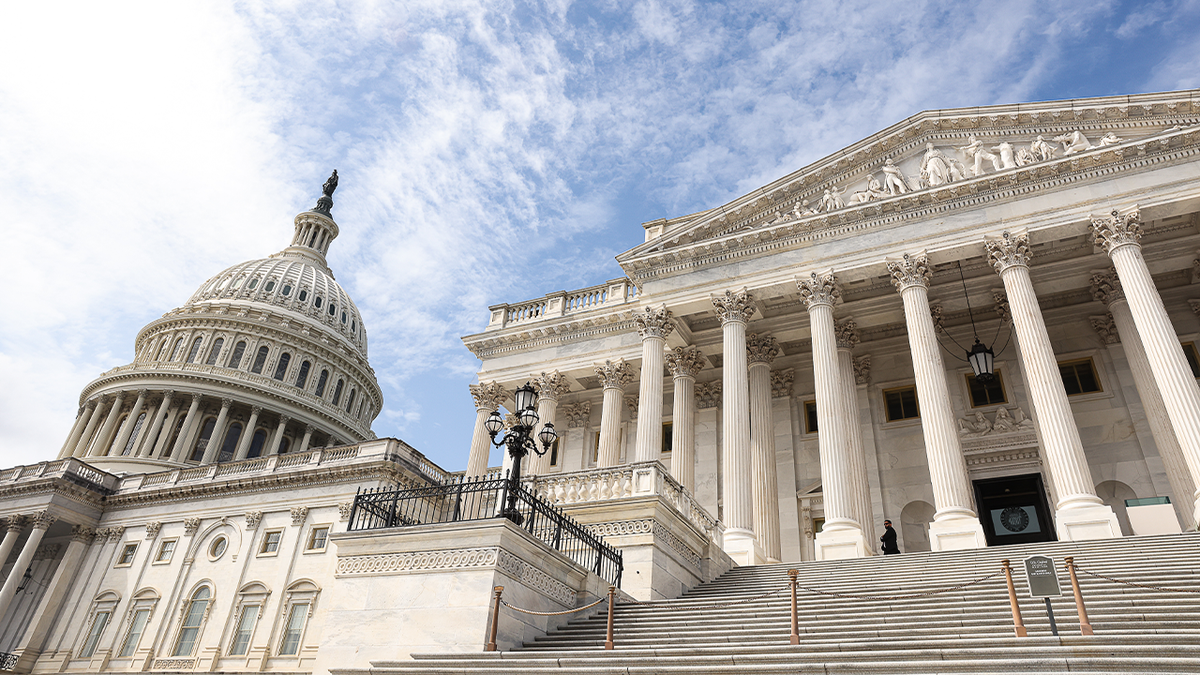
The House absolutely and unequivocally cannot do anything until it elects a Speaker. Period. (Valérie Plesch/photo alliance via Getty Images)
The inability to elect a president forces the House to vote again and again…
And again… and… again…
Until he finally touches someone.
McCarthy's election incinerated 15 ballots in five days two years ago.
The House went into a congressional cryogenic freeze for three weeks after members ousted McCarthy in October 2023. It burned two presidential candidates — House Majority Leader Steve Scalise, R-La., and House Majority Whip Tom Emmer, R-Minn. . — and one candidate in the field: Rep. Jim Jordan, R-Ohio.
So you see the problem.
Consider for a moment that before last year, the House had never held a runoff vote to select a speaker since Speaker Frederick Gillett, R-Mass., in 1923.
It took 63 votes before the House finally voted on President Howell Cobb, Democrat of Georgia, in 1849.
But it's nothing. The longest presidential election lasted two months before the House elected Speaker Nathaniel Banks, R-Mass., in 1856 – on the 133rd ballot.
So anything that prolongs this situation until it collides with January 6 – the legal day to certify election results and now one of the most ignominious days in American history – is dangerous.
JOHNSON ALLIES URGE TRUMP TO INTERVENE AS BATTLE OF THE PRESIDENTS THREATENS TO DELAY 2024 CERTIFICATION
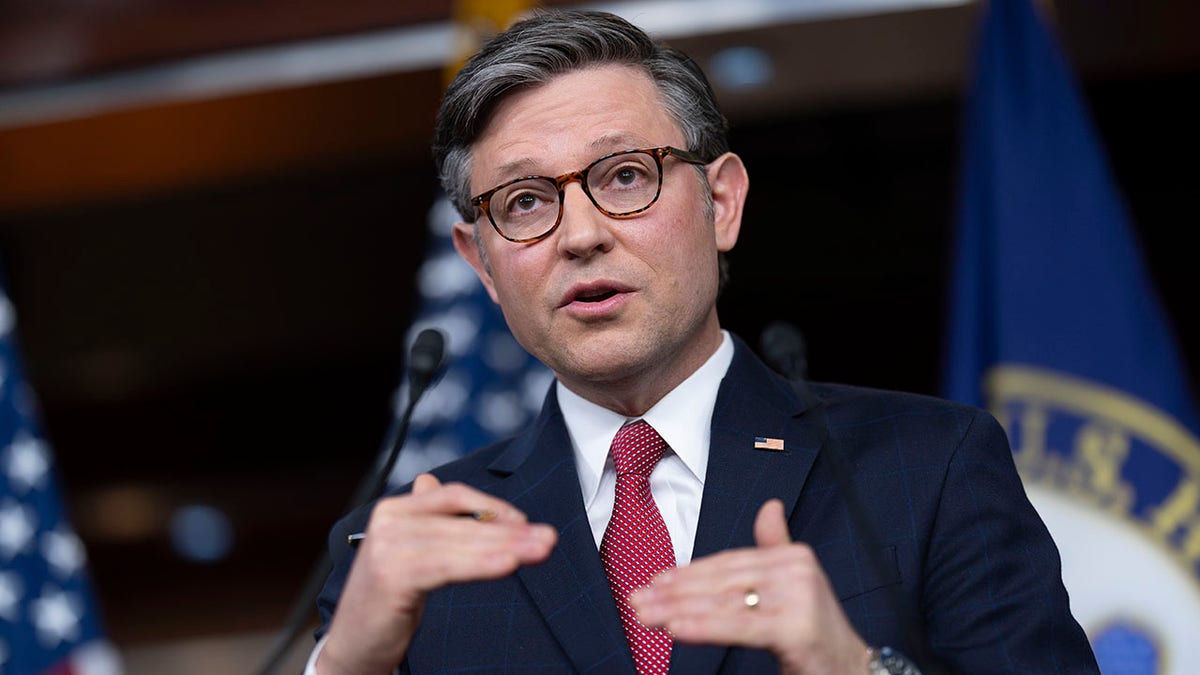
Without a president, the House cannot certify the Electoral College results, making Trump the 47th president of the United States on January 6. (AP/J.Scott Applewhite)
Let's be clear: There is no doubt that Trump won the election. There is no forecast of a repeat of a riot at the Capitol like four years ago. But failing to certify the Electoral College on the day it is supposed to be completed — especially after the experience of 2021 — is playing with fire. Such a scenario would once again reveal another vulnerability, never before considered, in the fragile American political system.
On Jan. 6, the House and Senate are scheduled to meet in a joint session of Congress to tabulate and certify the electoral votes. Any dispute over a state's electoral vote roll requires the House and Senate to separately debate and vote on those results. The election is not final until the joint session ends and the vice president – in this case Kamala Harris – in her capacity as President of the Senate, announces the winner.
Congress is not required to certify the Electoral College on the calendar day of January 6. There is actually some wiggle room to wrap things up. In 2021, the Electoral College was not certified until around 3:52 a.m. on January 7. This only becomes a major problem if it continues until January 20th at noon. This is when the Constitution mandates that the president-elect takes power. oath of office.
What will happen if the Electoral College is not resolved by January 20? Well, President Biden is done. So he left. The same with Harris. Next in the presidential line of succession is the Speaker of the House. Well, there's no speaker. So who becomes president?
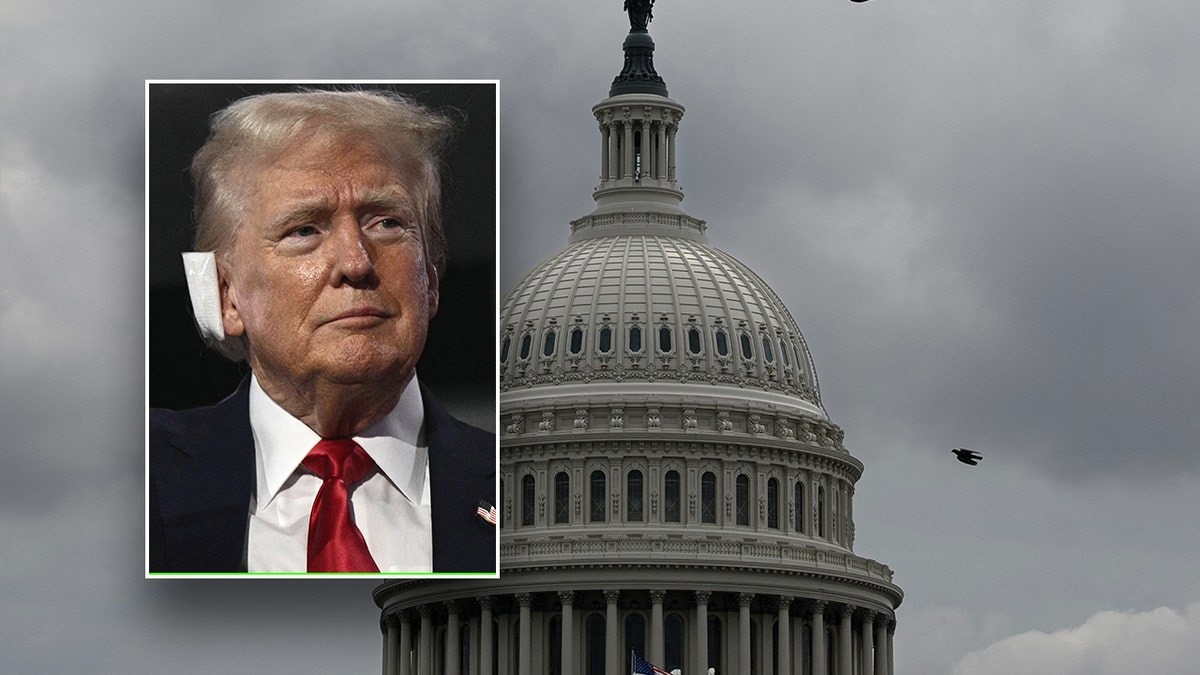
On Jan. 6, the House and Senate are scheduled to meet in a joint session of Congress to tabulate and certify the electoral votes. (Getty Images)
Well, at that point there was a Senate President pro tempore, the longest-serving member of the majority party. He or she is the fourth candidate for president. Currently, the president pro tempore is Sen. Patty Murray, D-Wash. But Republicans will claim control of the House in early January. And unlike the House, if it is blocked because of a speaker, the Senate works. That means 91-year-old Sen. Chuck Grassley, R-Iowa, becomes president pro tempore of the Senate. Grassley has been a member of the Senate since 1981.
If the House continues to waste time trying to elect a speaker on January 20, Grassley will likely become “acting speaker.”
I write “likely” because this enters into a serious, extra-constitutional conflict. These are unprecedented scenarios. Strange lands never before visited in the American political experience.
CLICK HERE TO GET THE FOX NEWS APP
And it all depends on Mike Johnson – or frankly anyone else – closing out the vote for president on January 3. Any interregnum like the last two presidential elections begins to set difficult historical precedents.
But frankly, it is not certain that the House can avoid such setbacks.
It's a question of mathematics. And once again, balancing this parliamentary equation is tenuous to say the least.
